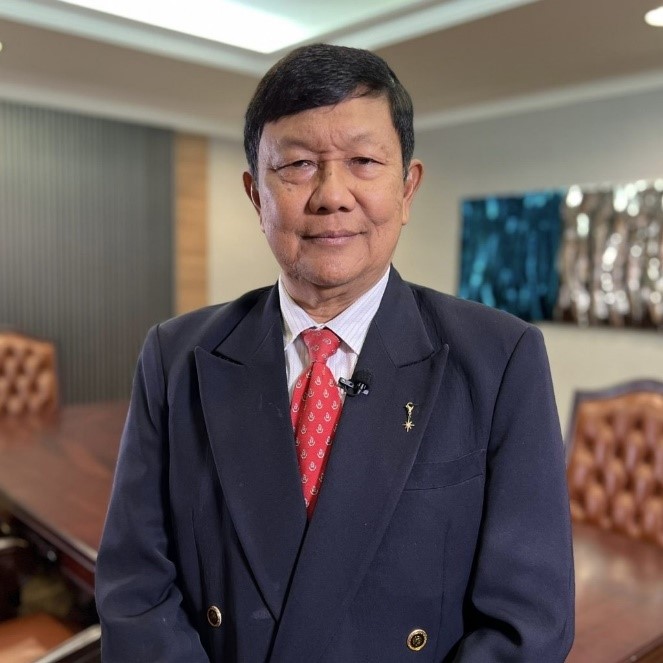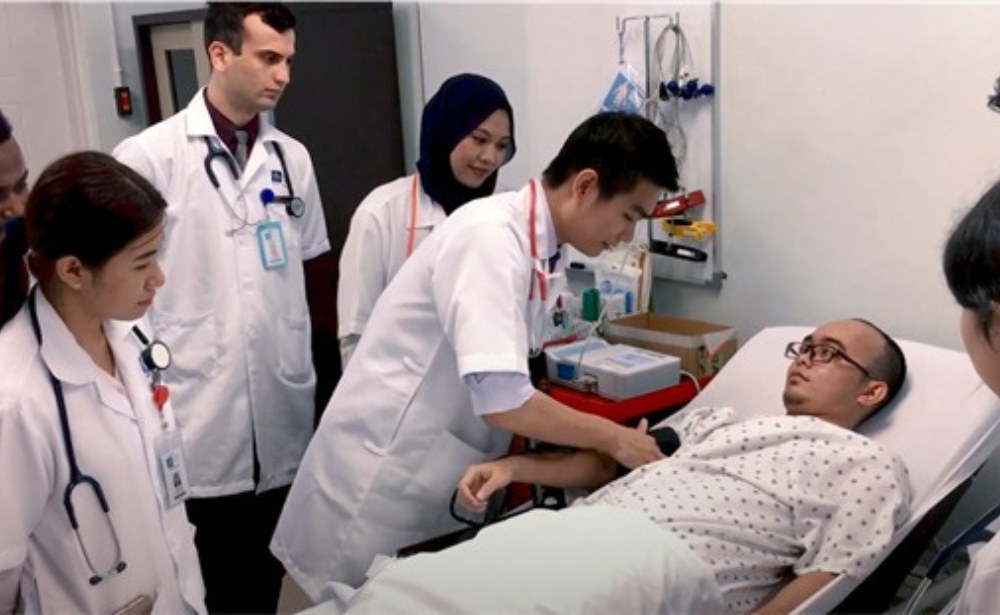When it comes to MBBS, you will learn everything you need to know about anatomy, surgery, orthopaedic, pathology, pharmacology etc. But is theory all it takes to become a doctor? Definitely not. You can ask your lecturer or any doctors, and they’ll tell you — the skills that save the day aren’t always the ones from a textbook.
We asked our medical professors and lecturers about the most valuable lessons they learned as students and how, as SEGi academicians, they now pass those lessons on to shape future doctors.
Here’s what they said:
- Speaking human, not medical jargon
Explaining a diagnosis in plain language takes more skill than reciting medical terms. You’ll learn how to make complex conditions understandable and reassuring, to patients and their families. At SEGi, this starts from Year 1 with simulated patient sessions and early exposure at Sibu Hospital, where you’ll practise turning medical terms into a language that patients trust and understand. - Reading the room
Sometimes the patient isn’t telling you the whole story. In time, you will slowly develop the ability to sense anxiety, discomfort, or hesitation and gently get to the truth. We help to build this through role-play exercises, patient interviews, and community health postings where you work with people from diverse backgrounds and learn to pick up on non-verbal cues. - Staying calm
Emergencies can happen anywhere at any time. Working in a real hospital teaches you to keep a clear head and prioritise under pressure. SEGi’s clinical postings, OSCEs, and high-fidelity simulation labs are designed to recreate real-life urgency so you learn to make decisions quickly and effectively. - Teamwork like your life depends on it (because sometimes it does)
Being in the medical field is never a solo act. You’ll learn to work with nurses, lab techs, surgeons, and even admin staff to get the right and best outcome for patients. In SEGi’s MBBS, you’re trained in multidisciplinary teams during hospital rotations and lab work, learning how to coordinate with other healthcare professionals to deliver the best care. - Time management
Juggling hospital rounds, lab work, lectures, and study sessions quickly sharpen your organisational skills. If you can survive med school scheduling, you can survive anything. SEGi supports this with structured timetables, academic mentoring, and continuous assessments that teach you to manage workload without burning out.
You will graduate as a doctor and by the time you finish your years at SEGi, you’ll also be composed under pressure, able to solve problems, lead others, and communicate with clarity — skills that will be just as valuable as your stethoscope.
ABOUT THE AUTHOR

MAJOR GENERAL PROFESSOR DATO’ DR. MOHD ZIN BIDIN
Dean, Faculty of Medicine, Nursing and Health Sciences, SEGi University
Major General Professor Dato’ Dr Mohd Zin bin Bidin is a distinguished medical doctor, military leader, and academic. He is currently serving as Dean of the Faculty of Medicine, Nursing & Health Sciences at SEGi University, where he brings a transformative vision to medical education. As the founding Dean of the Faculty of Medicine and Defence Health at the National Defence University of Malaysia, he led curriculum design, faculty recruitment, infrastructure development, and accreditation efforts from the ground up. Dr Mohd Zin’s extensive career spans roles such as Vice-Chancellor of Widad University College, National Chief Medical Officer for the Malaysian Formula 1 Grand Prix (holding the FIM Chief Medical Officer Superlicence), and Founding Chairman of the National Sports Institute. In the realm of scouting, he was appointed as the 7th National Chief Scout of Malaysia in December 2023, after serving as Acting Chief Scout since 2019, and was Malaysia’s 13th National Chief Scout Commissioner from 2016 to 2024. His academic credentials include an MD from Universiti Kebangsaan Malaysia, an MPH from the University of the Philippines, and an MSc in Clinical Tropical Medicine and Hygiene from Mahidol University.

